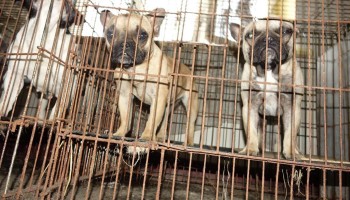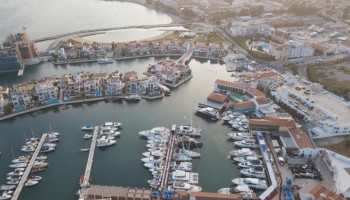During the Tuesday police operation “Matrioskas”, named after the Russian dolls that nest one inside another, supported by Europe's joint police force, Europol, more than 70 officers searched 22 houses and companies - including four major football clubs - and seized several thousand Euros in cash. They arrested three suspected key members of the group, including Alexander Tolstikov, a Russian businessman and the owner of one of four football teams being investigated, according to CNN.
According to Europol, the group is suspected to be a cell of a Russian mafia group that laundered several million Euros throughout the European Union. It is believed that the source of most of this money is derived from various criminal activities committed outside of the EU.
The group would allegedly find financially unstable football clubs and provide them with short-term donations and investments by benefactors who would later purchase those clubs.
The benefactors would be represented by people acting as front men for holding companies owned by offshore firms in tax havens, concealing the true identity of the ultimate owners of the clubs, as well as the source of the funds with which they were bought.
Due to the large scope of financial transactions and cross/border money flows, these clubs can be utilized for money laundering. According to Europol, this is mainly achieved through over or under-evaluating players on the transfer market and television rights deals, as well as betting activities, including match fixing.
The group is allegedly linked to serious organized crime activities committed in Austria, Estonia, Germany, Latvia, Moldova and the United Kingdom.
The investigation, lasting for more than a year, was initiated after authorities noticed the high living standards of the suspects, who used high-valued assets registered under the names of third parties – the front men of the holding companies under the control of offshore firms. Investigators found the suspects would import significant amounts of cash from Russia to Portugal, violating EU cash regulations.
Portuguese authorities allege the suspects are guilty of money laundering, tax fraud, document forgery and criminal association.
Europol alleges that after pumping a series of donations and investments into a local football club that competed in the main Portuguese football league, which was facing financial distress, the criminal group purchased it in July 2015.
According to BBC, one of the football clubs investigators were interested in is Uniao de Leiria, which went bankrupt and was purchased by Russian national Alexander Tolstikov in 2015.
According to CNN, the head of the Leiria Department of Criminal Investigation, Antonio Sintra, said that the other three football clubs that were searched – Benfica, Sporting and Braga – are not under investigation, but were searched because they acquired Russian players from Leiria, and were thus in possession of documentation that might aid the investigation.
According to Europol's Head of the Financial Intelligence Group, Igor Angelini, "The football sector presents vulnerabilities related to its structure, finance model and culture which could be exploited by criminals."






